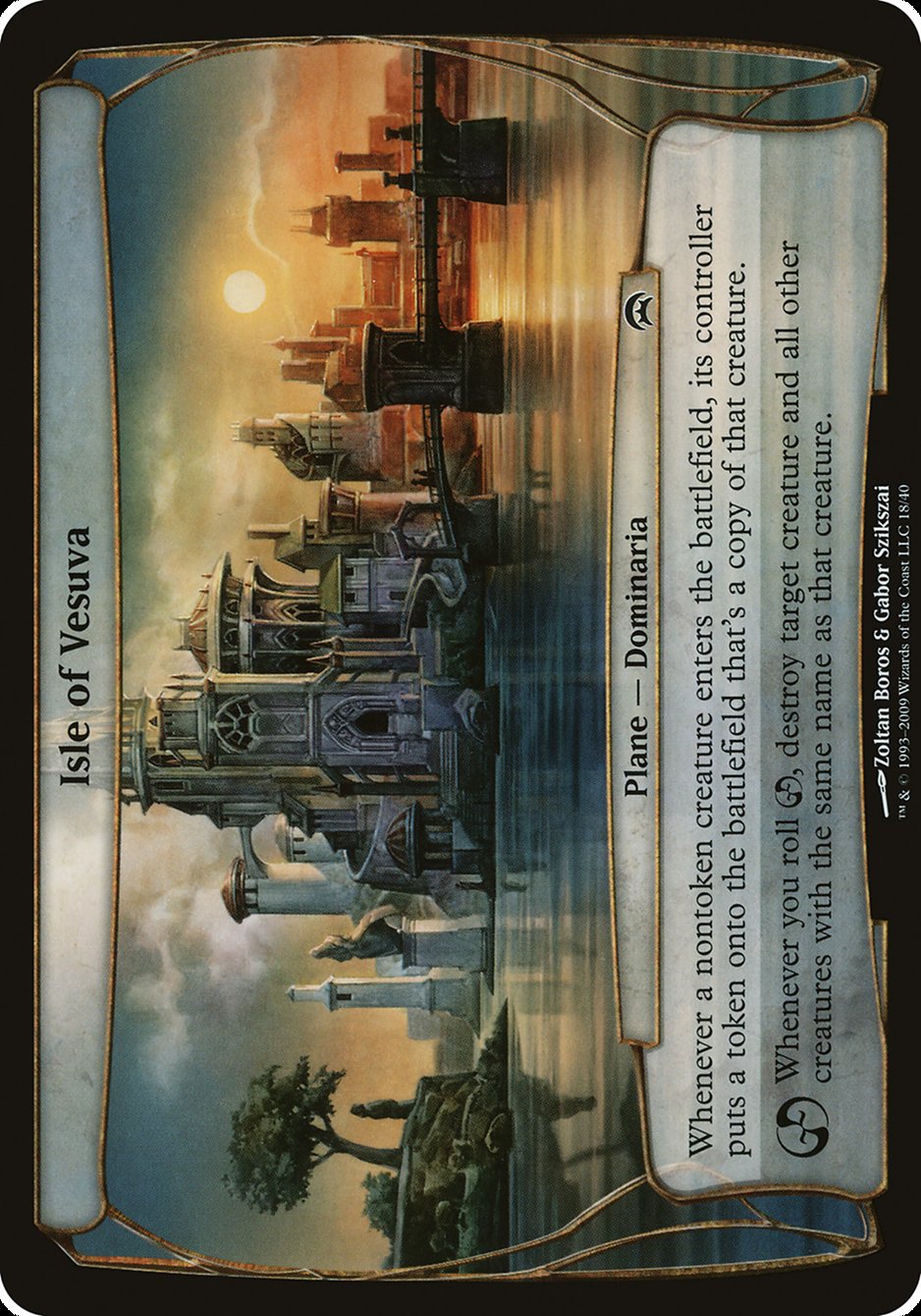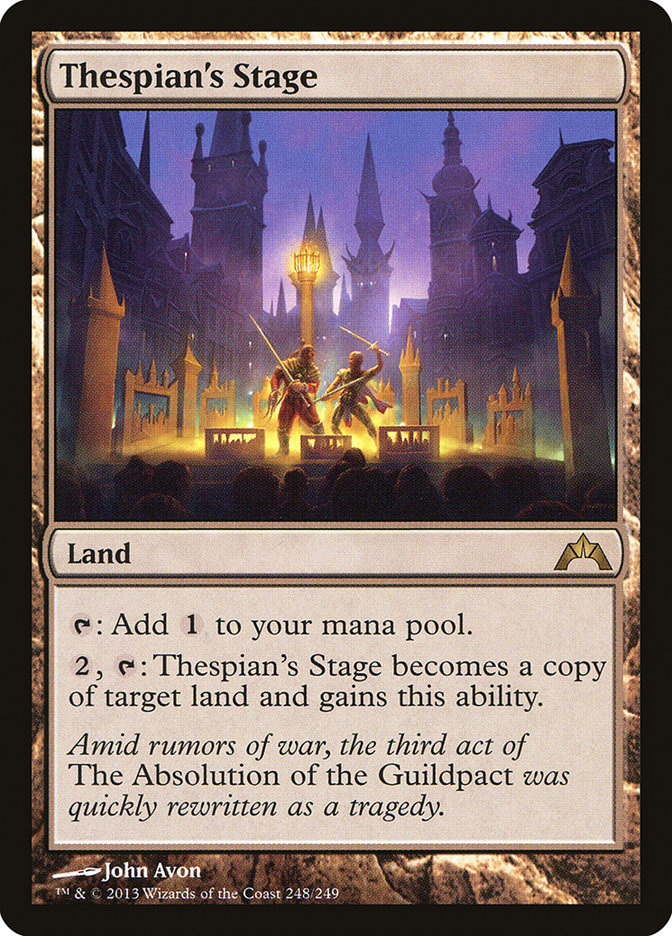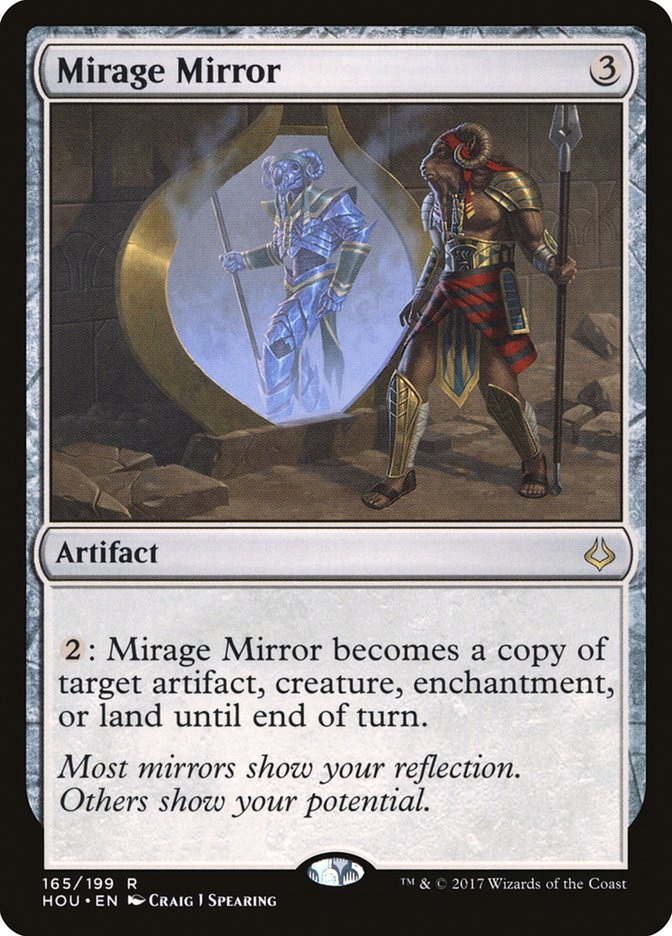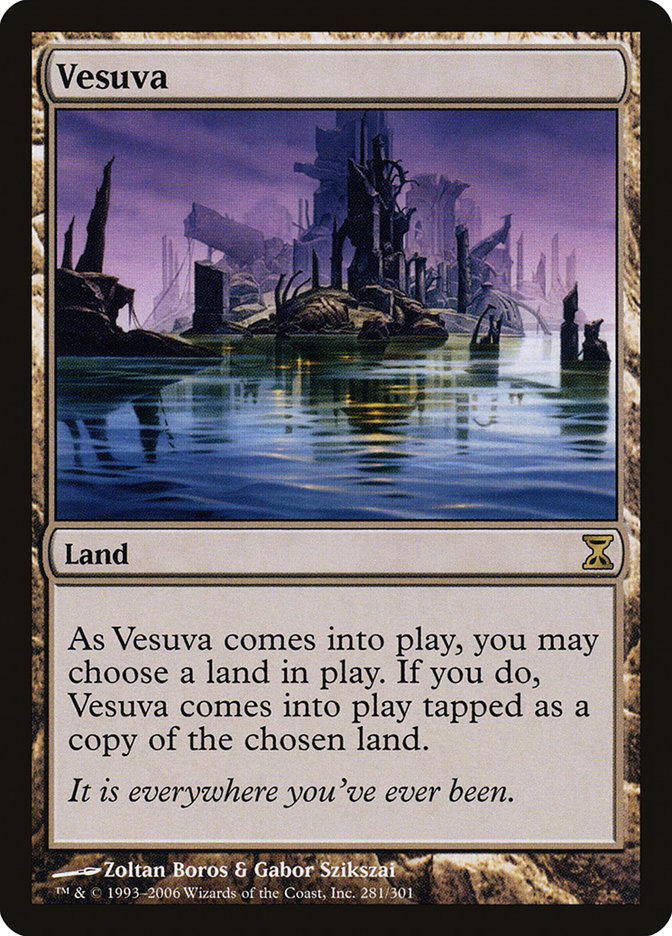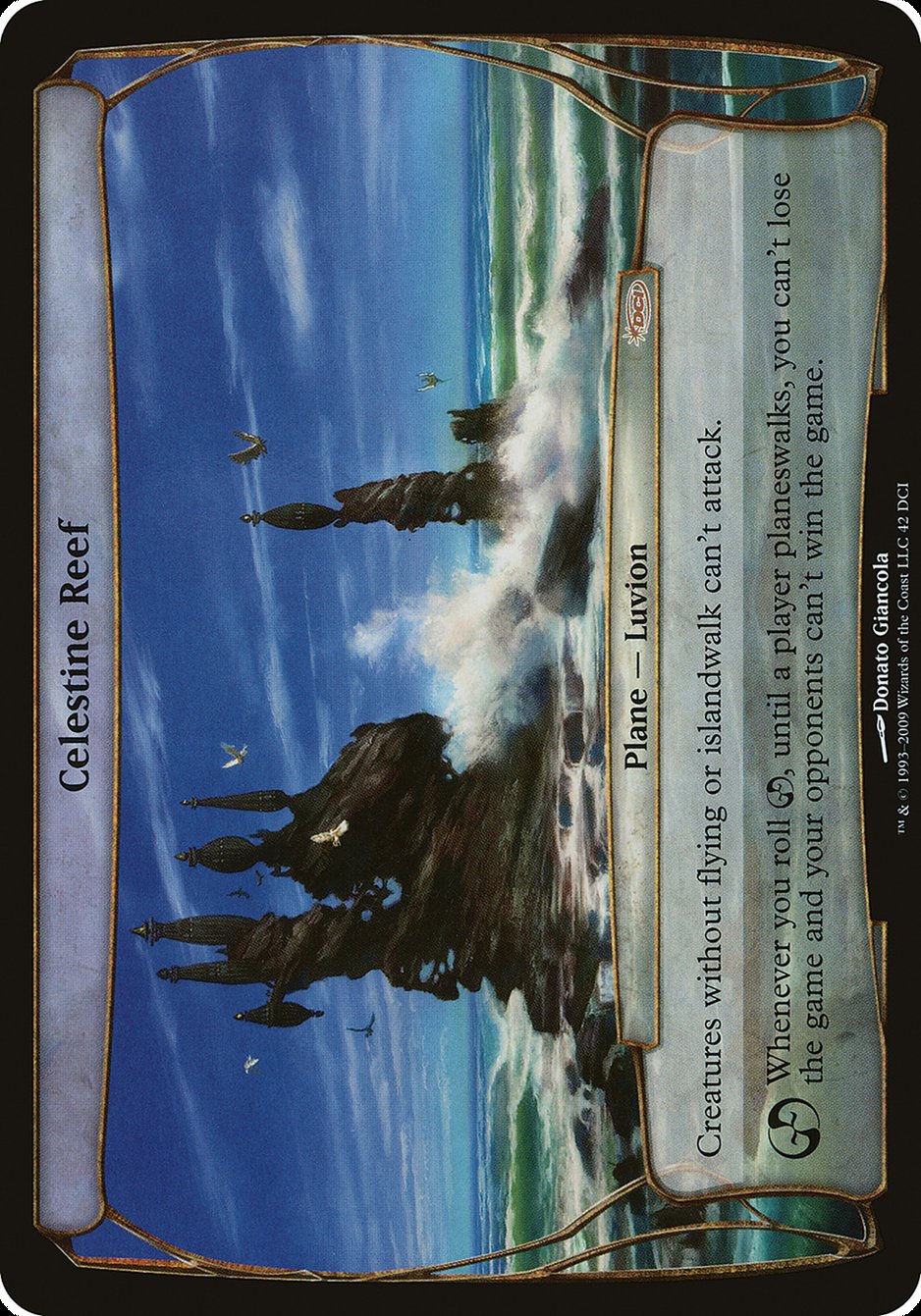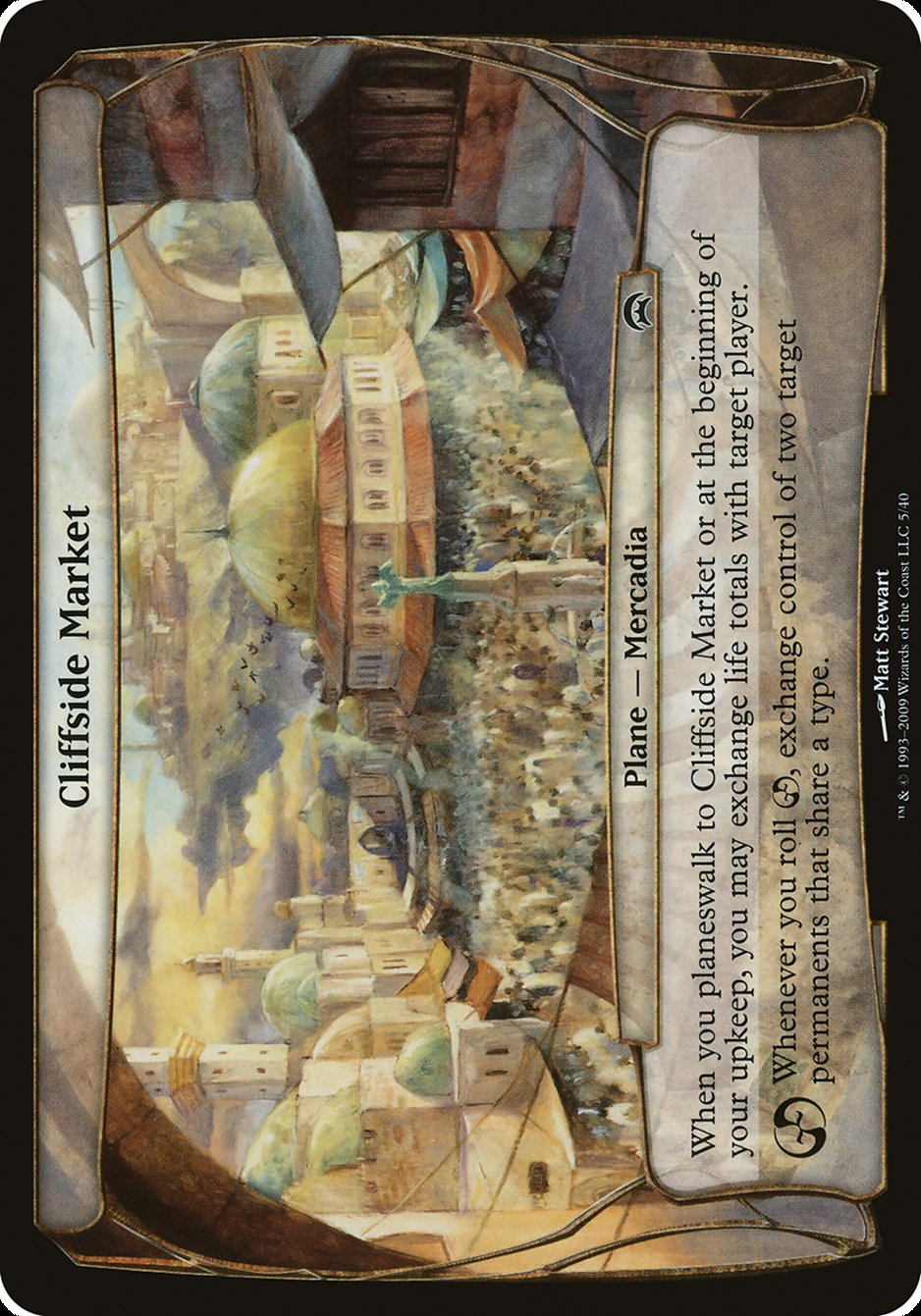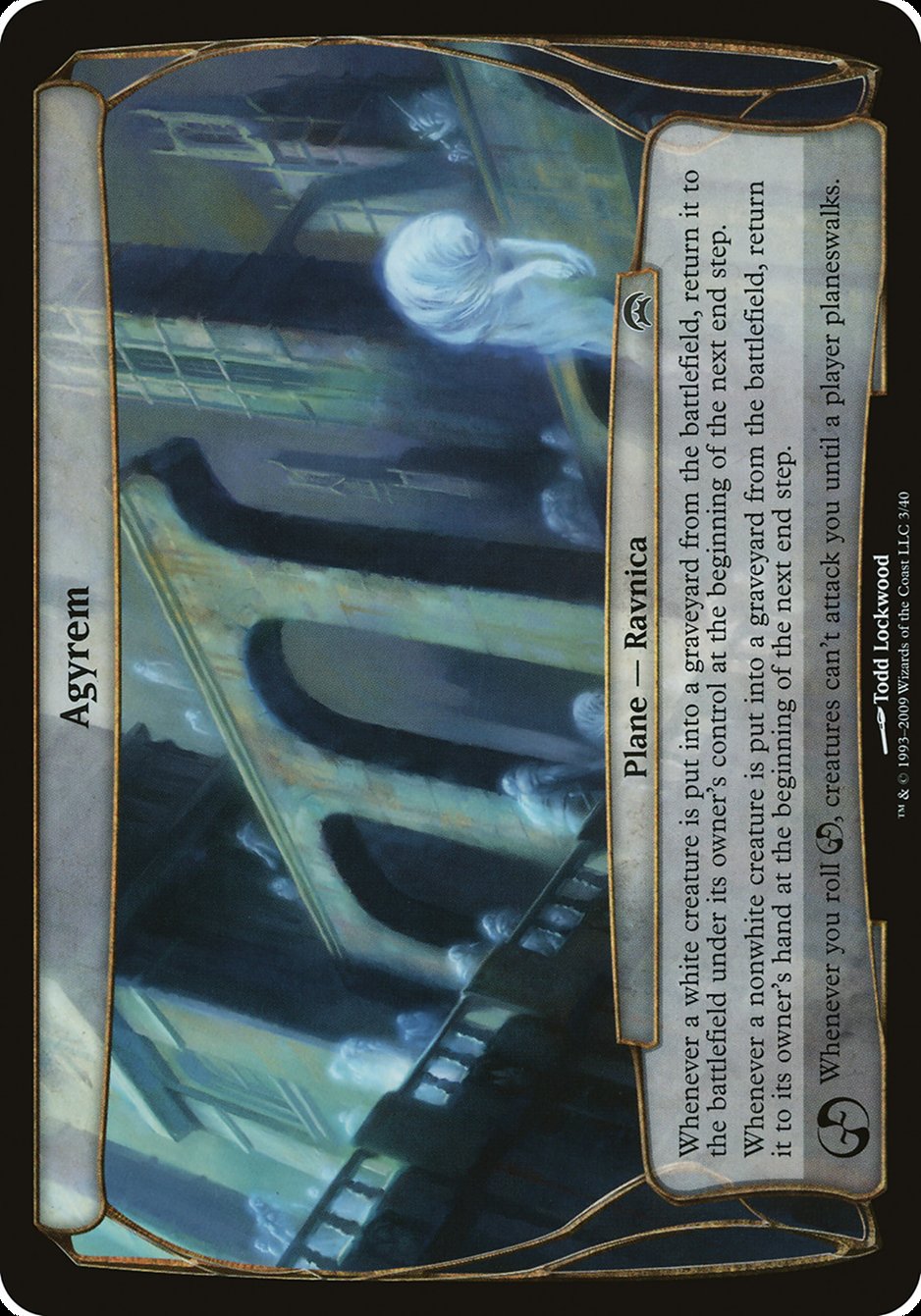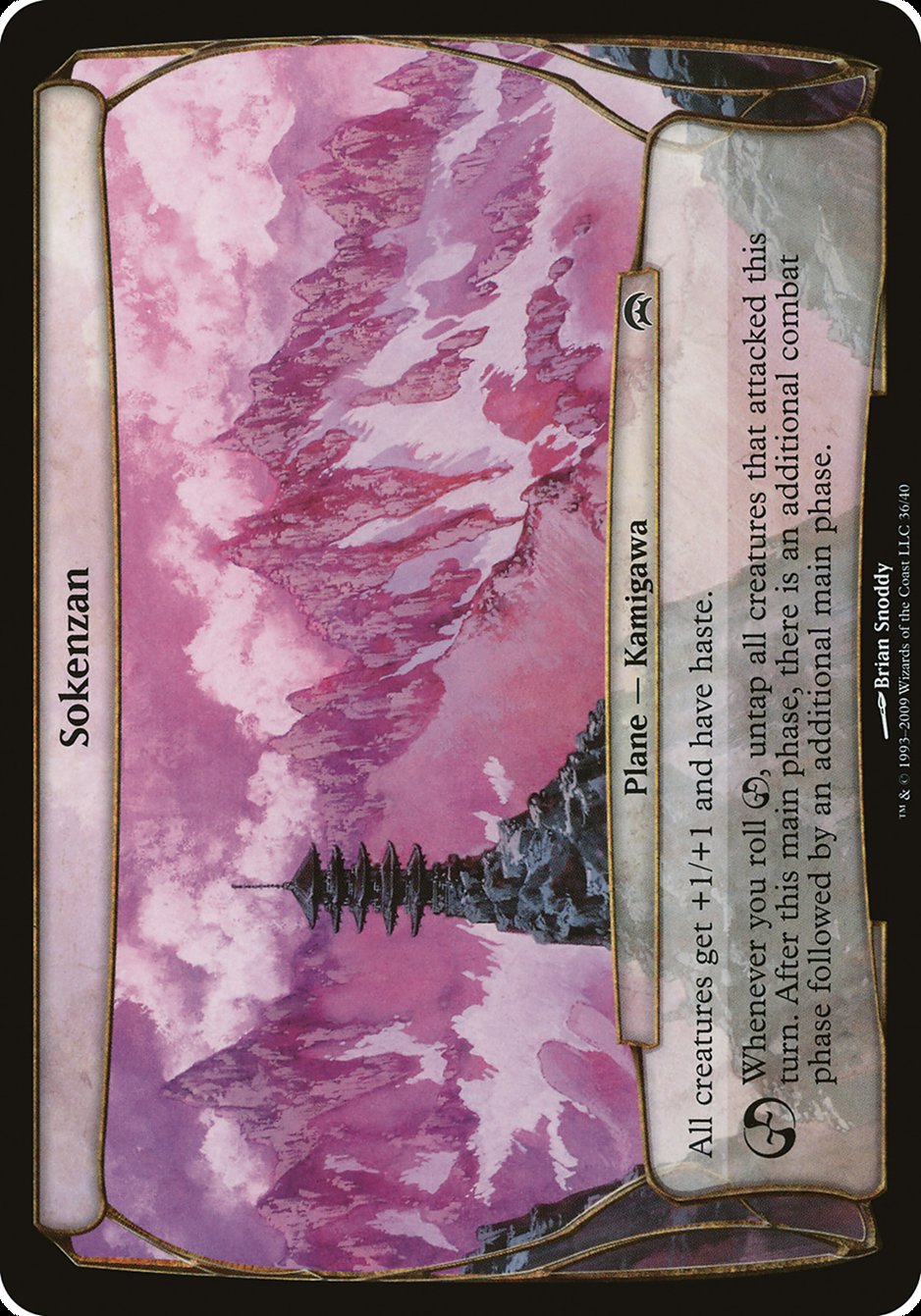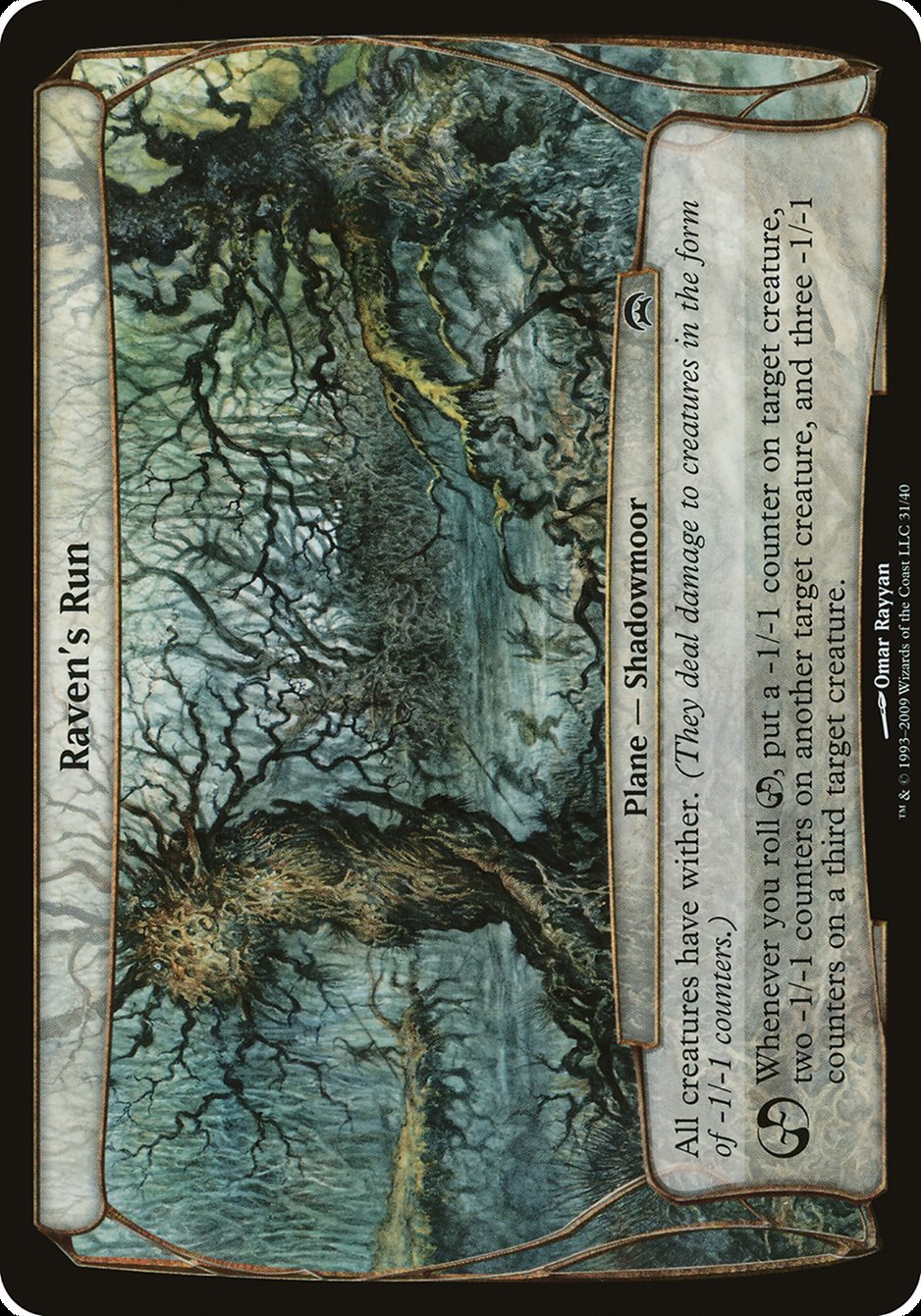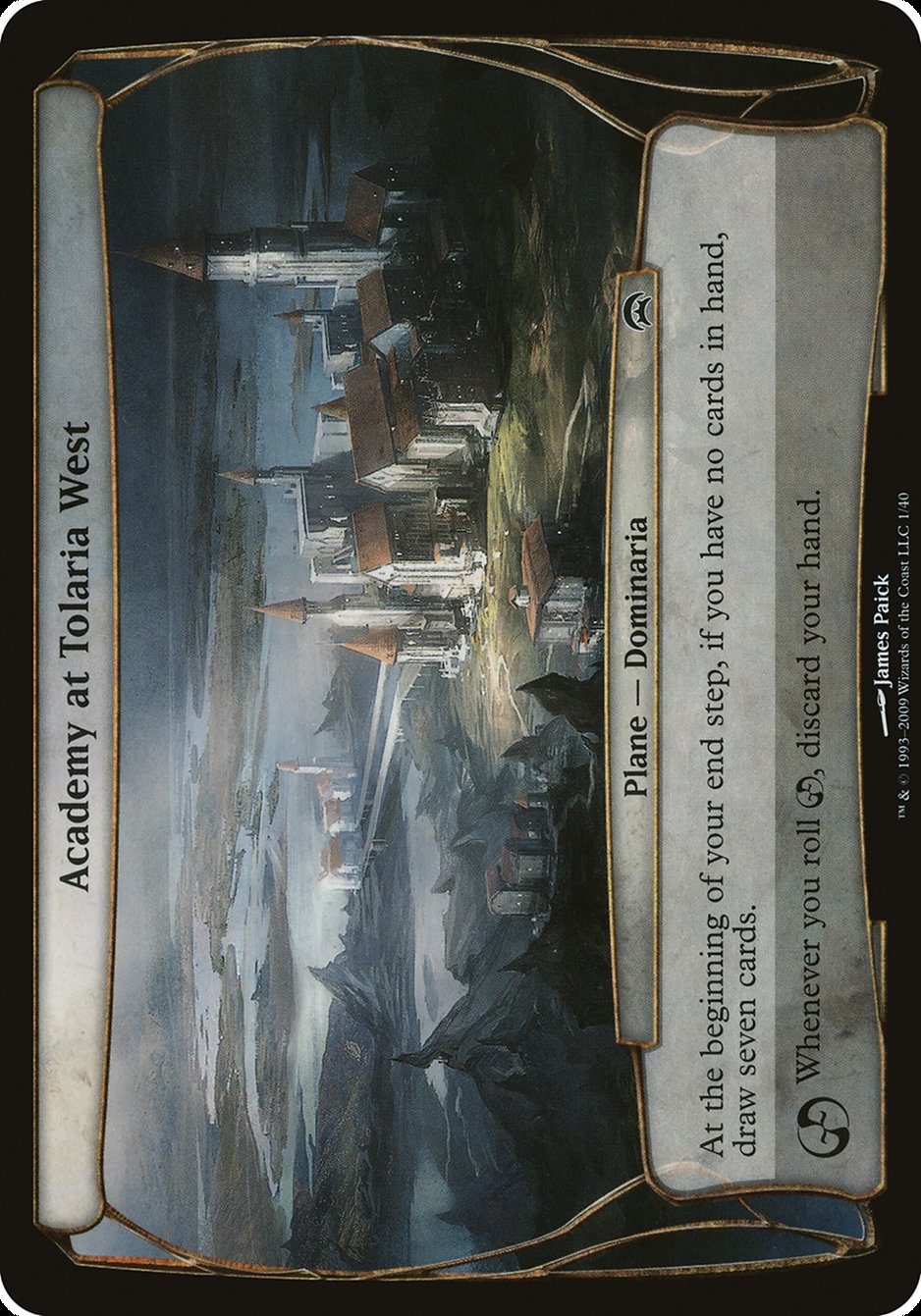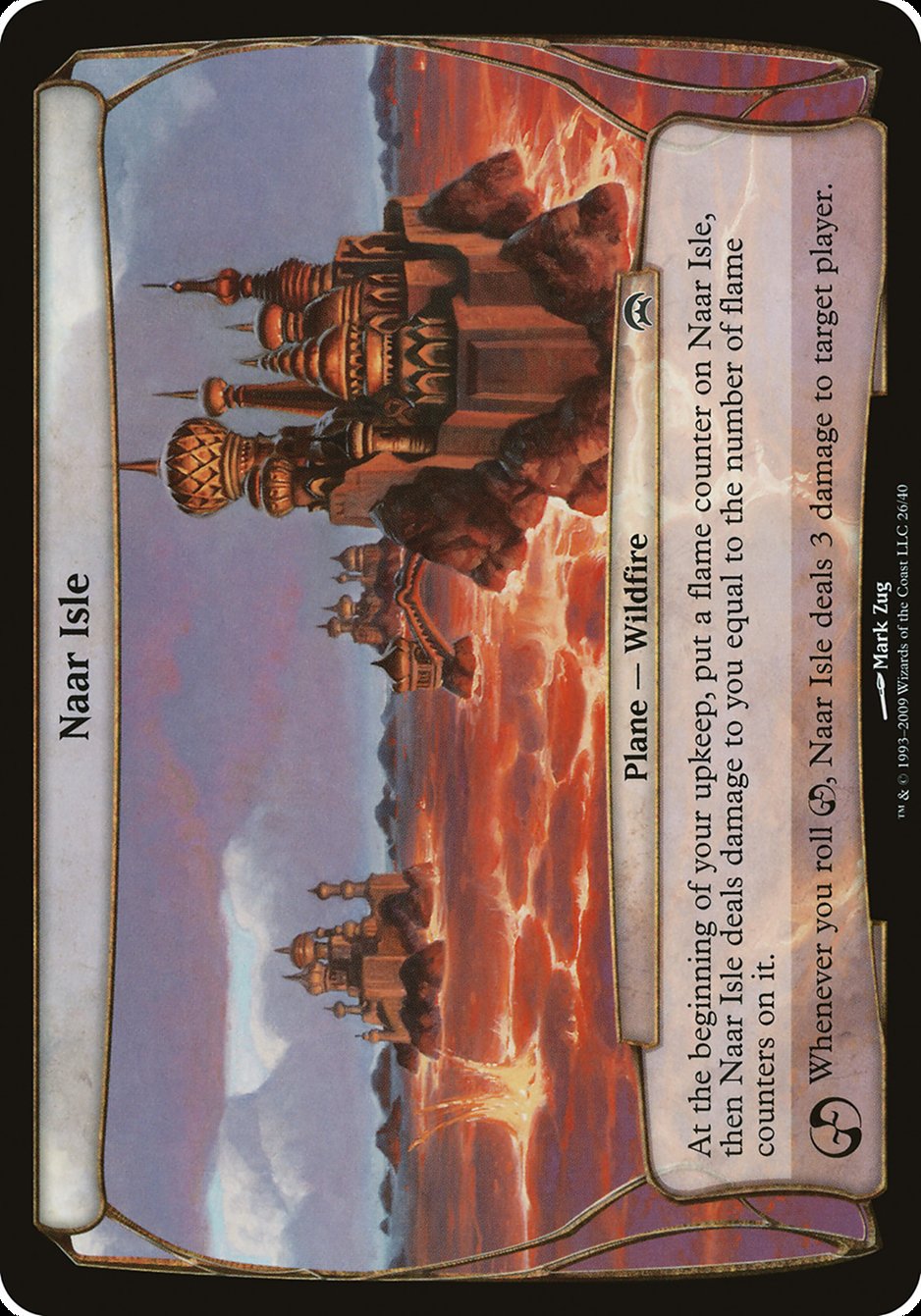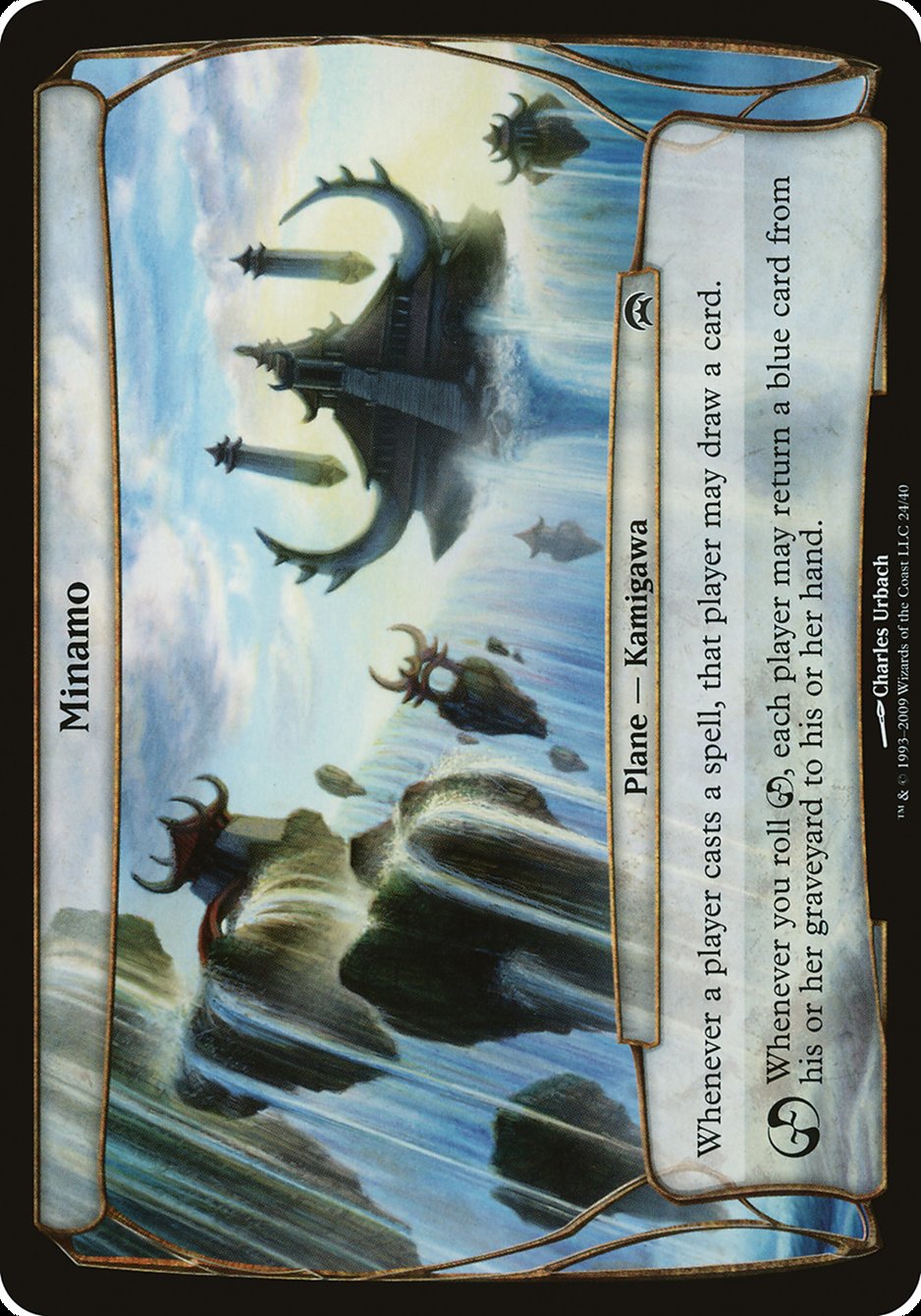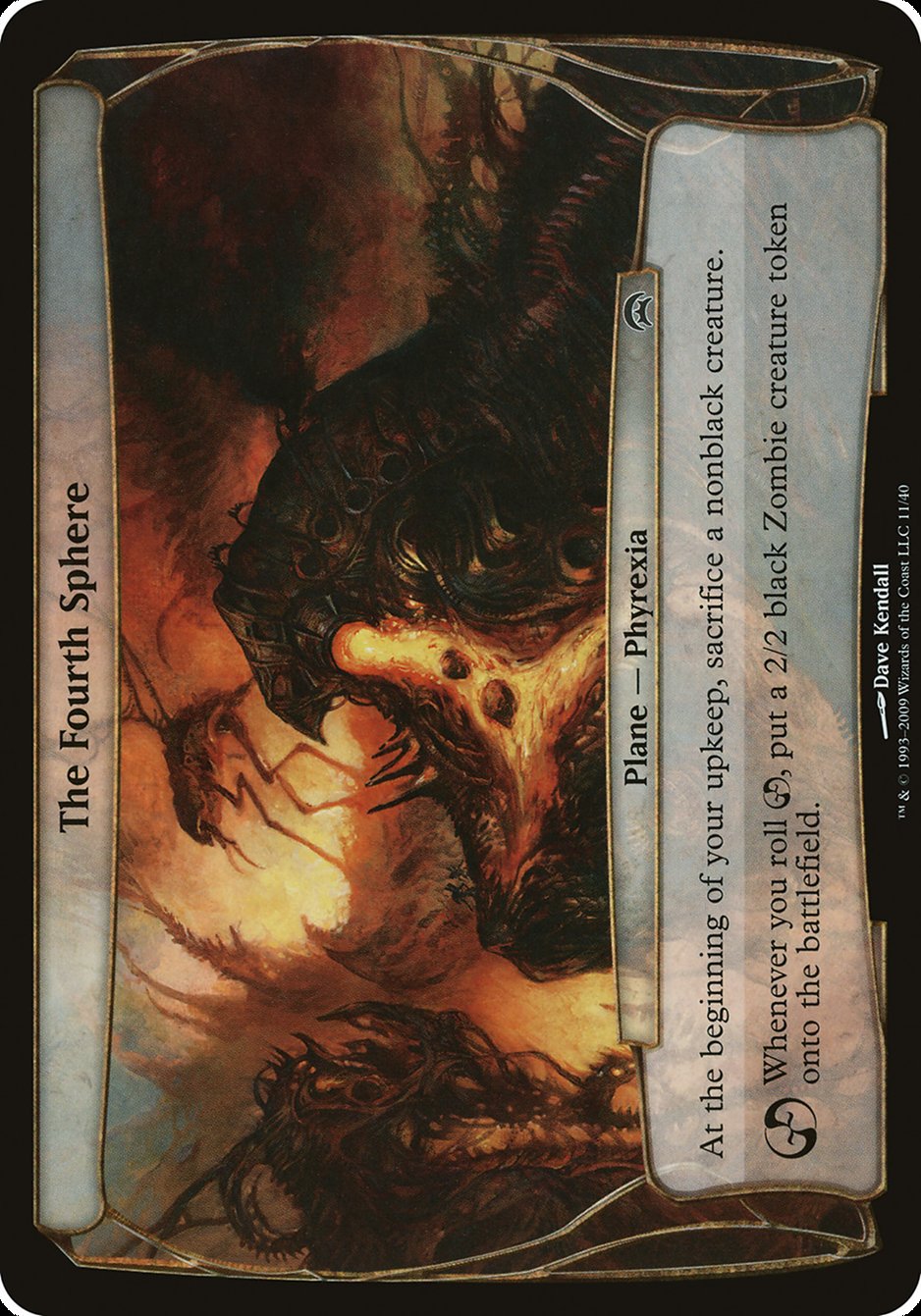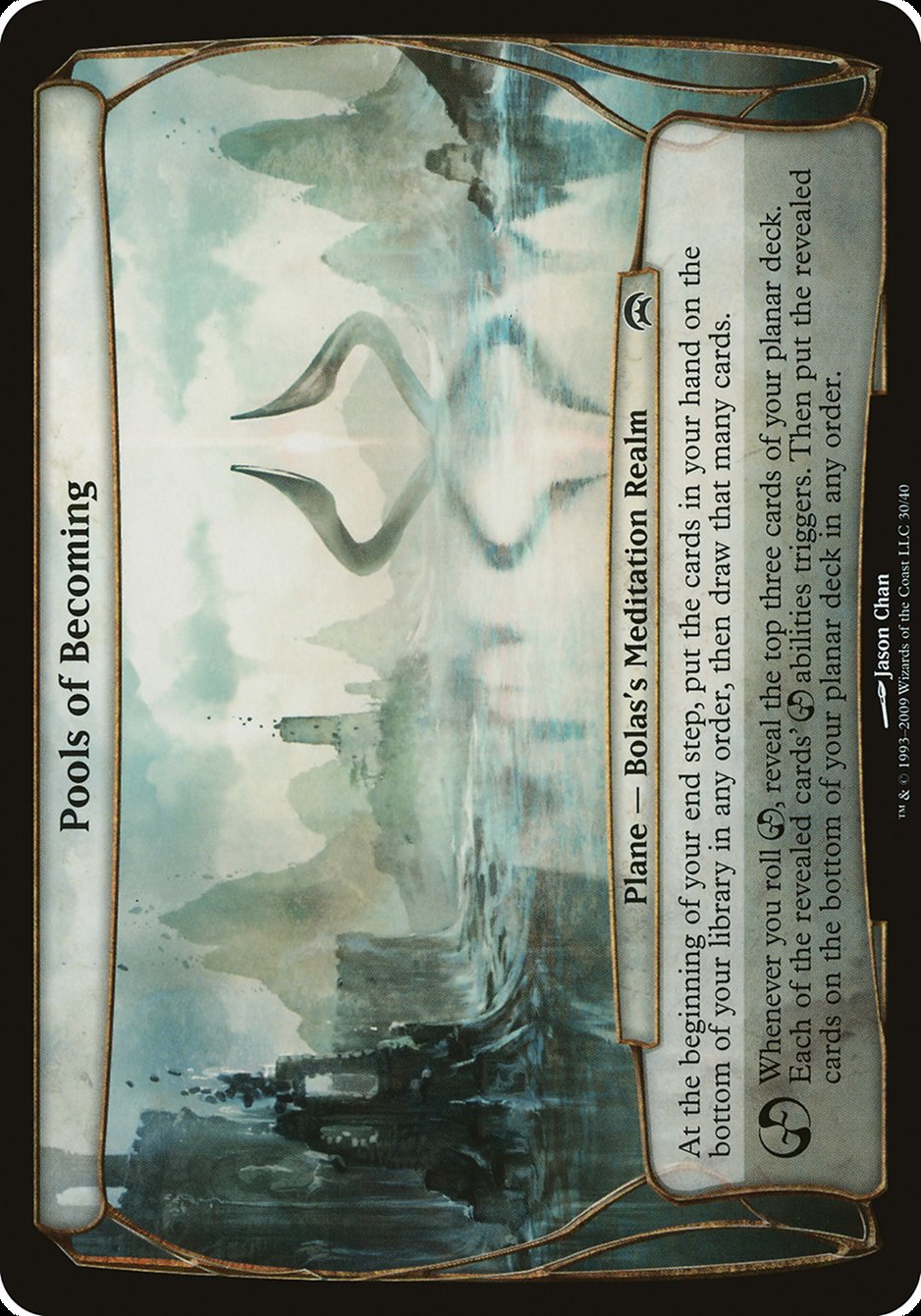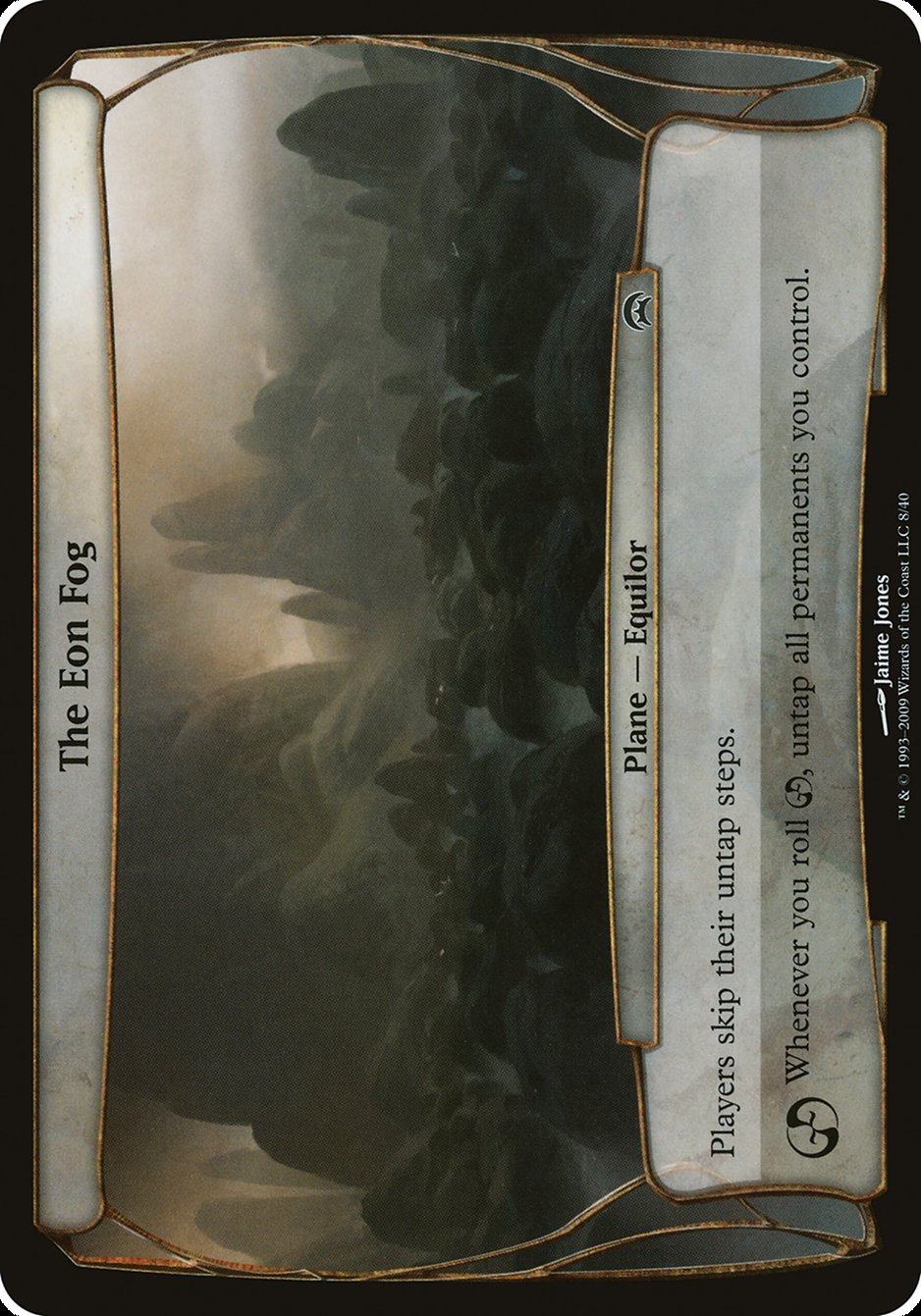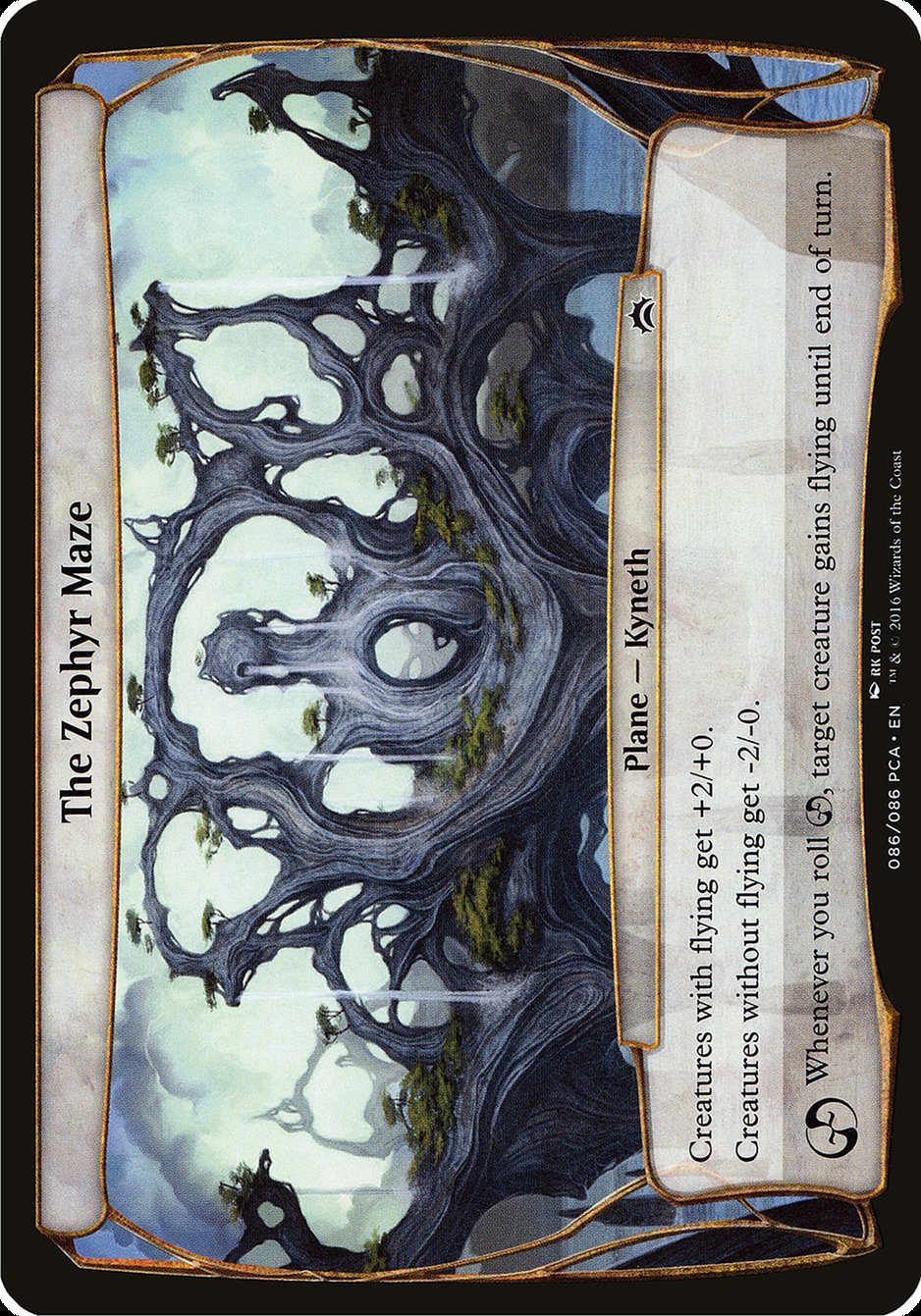Isle of Vesuva MTG Card
| Card sets | Released in 3 setsSee all |
| Rarity | Common |
| Type | Plane — Dominaria |
Text of card
Whenever a nontoken creature enters the battlefield, its controller puts a token onto the battlefield that's a copy of that creature. Whenever you roll chaos, destroy target creature and all other creatures with the same name as that creature.
Cards like Isle of Vesuva
The Isle of Vesuva generates excitement among players who are building land-centric decks in Magic: The Gathering. It finds company with the likes of Thespian’s Stage, a card able to copy any land at a moment’s notice. Though the Isle of Vesuva has the advantage of not requiring mana to copy a land upon its entrance to the battlefield. This instant ability can be crucial in mirroring powerful lands right away.
Also vying for deck space is the Mirage Mirror, not limited to lands, it copies almost any permanent for a small fee. Where Isle of Vesuva might be a one-time strategic placement, Mirage Mirror offers ongoing versatility. Conversely, another land to consider is Vesuva itself – a card with the sole purpose of duplicating any land on the field. While Vesuva does not enter play tapped, it still copies the same variety of lands as the Isle without the spontaneous aspect.
These land-copying mechanisms offer varied strategic depth to MTG deck builders. The Isle of Vesuva stands out for its on-entry effect, enabling quick replication without the need for further investment, making it a distinctive and worthy choice for a land-slot in many MTG decks.
Cards similar to Isle of Vesuva by color, type and mana cost
Card Pros
Card Advantage: The Isle of Vesuva card serves as a powerful tool for card advantage as it has the capability to copy the strongest land on the battlefield. This not only matches the value of opponents’ lands but also can significantly benefit your own land-based strategies.
Resource Acceleration: Through its copying ability, Isle of Vesuva can become any land that produces additional mana, effectively working as a form of resource acceleration. Whether it’s copying a land that taps for multiple mana or one that provides various color options, it ensures that you don’t fall behind in the mana curve.
Instant Speed: Though not an instant itself, Isle of Vesuva’s clone ability occurs immediately as it enters the battlefield. It doesn’t require the land to be tapped, and the effect is not reliant on the speed of a sorcery or instant. This allows for immediate impact upon playing, catching opponents off guard, and potentially offering instant-speed-like responses to shifts in the game’s state.
Card Cons
Discard Requirement: While the Isle of Vesuva card does not require a discard upon entry, certain conditions triggered by this card could compel a player to dispose of valuable cards, potentially dwindling their hand.
Specific Mana Cost: As a land card, Isle of Vesuva doesn’t have a mana cost, but its ability to copy only comes into effect as it enters the battlefield, which makes it less versatile compared to lands that provide value on an ongoing basis.
Comparatively High Mana Cost: Even though Isle of Vesuva doesn’t demand mana for casting, its opportunity cost can be high; tying up a land drop means you might miss out on playing a land that provides immediate mana or other advantages. In the fast-paced dynamics of some MTG formats, efficiency is key, and Isle of Vesuva’s setup requirement might set you back in crucial moments.
Reasons to Include in Your Collection
Versatility: The Isle of Vesuva offers a unique capability to copy any land on the battlefield, providing an adaptable solution to any mana needs or strategic requirements. This functionality allows it to fit seamlessly into a variety of deck archetypes, from control to combo, enhancing consistency across the board.
Combo Potential: With its ability to duplicate any valuable land, Isle of Vesuva can be a critical component in land-based combos, synergizing with effects that trigger off land entries or providing the perfect complement to landfall strategies. Its entrance as a copy can also act as a catalyst for numerous in-game triggers.
Meta-Relevance: Given how often land strategies and utility lands make a strong showing in various metagames, having a Vesuva in your arsenal ensures you’re well-equipped to match and even exceed the utility your opponents bring to the table, making it a worthwhile addition to any collection in tune with the evolving competitive landscape.
How to beat
Isle of Vesuva is a notable card in Magic: The Gathering, often celebrated for its ability to clone any land on the battlefield. This adaptability offers players the opportunity to optimize their mana base or utilize the unique abilities of their opponent’s lands. That said, triumphing over Isle of Vesuva comes down to strategy and selecting the right countermeasures.
To effectively neutralize the Isle, consider playing cards that restrict land abilities or employ land destruction. Strategies like running Ghost Quarter or Field of Ruin can transform the battle in your favor, as they can target and eliminate the cloned land, potentially disrupting your opponent’s mana fixing efforts. Keeping in mind the mana curve and adaptability of your own deck when including such answers is crucial. Additionally, cards that limit the utility of nonbasic lands, such as Blood Moon, can turn Vesuva into a basic mountain, thereby nullifying its cloning potential. Tactful planning and a well-constructed deck are your best defenses against the versatility of the Isle of Vesuva.
Understanding the implications of the Vesuva clone and preparing your deck with appropriate answers is key to claiming victory against opponents who utilize this dynamic card in their MTG arsenal.
Where to buy
If you're looking to purchase Isle of Vesuva MTG card by a specific set like Planechase Planes and Planechase Anthology Planes, there are several reliable options to consider. One of the primary sources is your local game store, where you can often find booster packs, individual cards, and preconstructed decks from current and some past sets. They often offer the added benefit of a community where you can trade with other players.
For a broader inventory, particularly of older sets, online marketplaces like TCGPlayer, Card Kingdom and Card Market offer extensive selections and allow you to search for cards from specific sets. Larger e-commerce platforms like eBay and Amazon also have listings from various sellers, which can be a good place to look for sealed product and rare finds.
Additionally, Magic’s official site often has a store locator and retailer lists for finding Wizards of the Coast licensed products. Remember to check for authenticity and the condition of the cards when purchasing, especially from individual sellers on larger marketplaces.
Below is a list of some store websites where you can buy the Isle of Vesuva and other MTG cards:
 BUY NOW
BUY NOW BurnMana is an official partner of TCGPlayer
- eBay
- Card Kingdom
- Card Market
- Star City Games
- CoolStuffInc
- MTG Mint Card
- Hareruya
- Troll and Toad
- ABU Games
- Card Hoarder Magic Online
- MTGO Traders Magic Online
See MTG Products
Printings
The Isle of Vesuva Magic the Gathering card was released in 3 different sets between 2009-09-04 and 2023-04-21. Illustrated by 4 different artists.
| # | Released | Name | Code | Symbol | Number | Frame | Layout | Border | Artist |
|---|---|---|---|---|---|---|---|---|---|
| 1 | 2009-09-04 | Planechase Planes | OHOP | 18 | 2003 | Planar | Black | Zoltan Boros & Gabor Szikszai | |
| 2 | 2018-12-25 | Planechase Anthology Planes | OPCA | 39 | 2015 | Planar | Black | Zoltan Boros & Gabor Szikszai | |
| 3 | 2023-04-21 | March of the Machine Commander | MOC | 147 | 2015 | Planar | Black | Zoltan Boros & Gabor Szikszai |
Rules and information
The reference guide for Magic: The Gathering Isle of Vesuva card rulings provides official rulings, any errata issued, as well as a record of all the functional modifications that have occurred.
| Date | Text |
|---|---|
| 2009-10-01 | A face-down creature has no name, so it doesn't have the same name as anything else. |
| 2009-10-01 | A face-up plane card that's turned face down becomes a new object with no relation to its previous existence. In particular, it loses all counters it may have had. |
| 2009-10-01 | A plane card is treated as if its text box included “When you roll {PW}, put this card on the bottom of its owner's planar deck face down, then move the top card of your planar deck off that planar deck and turn it face up.” This is called the “planeswalking ability.” |
| 2009-10-01 | A token's name is the same as the creature types listed by the effect that created it, unless the token copies a permanent or that effect specifically gives that token a name. For example, the effect of The Fourth Sphere's chaos ability creates a token with the name “Zombie.” |
| 2009-10-01 | As a token is created by Isle of Vesuva's first ability, it checks the printed values of the creature it's copying, as well as any copy effects that have been applied to it. It won't copy counters on the creature, nor will it copy other effects that have changed the creature's power, toughness, types, color, and so on. |
| 2009-10-01 | If an ability of a plane refers to “you,” it's referring to whoever the plane's controller is at the time, not to the player that started the game with that plane card in their deck. Many abilities of plane cards affect all players, while many others affect only the planar controller, so read each ability carefully. |
| 2009-10-01 | If the creature that caused Isle of Vesuva's first ability to trigger has already left the battlefield by the time the ability resolves, the ability still creates a token. It will have the copiable values of the characteristics of that nontoken creature as it last existed on the battlefield. |
| 2009-10-01 | If the permanent targeted by the chaos ability has become an illegal target by the time the ability resolves, the ability doesn't resolve. Nothing will be destroyed. |
| 2009-10-01 | The chaos ability will destroy all creatures with the same name as the target creature, not just tokens created by Isle of Vesuva's first ability. It doesn't matter who controls them. |
| 2009-10-01 | The controller of a face-up plane card is the player designated as the “planar controller.” Normally, the planar controller is whoever the active player is. However, if the current planar controller would leave the game, instead the next player in turn order that wouldn't leave the game becomes the planar controller, then the old planar controller leaves the game. The new planar controller retains that designation until they leave the game or a different player becomes the active player, whichever comes first. |
| 2013-07-01 | If the permanent targeted by the chaos ability isn't destroyed (because it regenerates, or because it has indestructible), all other permanents with the same name as it will still be destroyed. |
